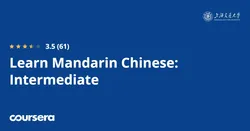
Cross-border road transport in EU law context 
This article examines the legal framework of cross-border road transport in the EU, exploring the relevant regulations and their implications. It provides an overview of the legal context and implications for those involved in the industry. ▼
ADVERTISEMENT
Course Feature
![]() Cost:
Cost:
Free
![]() Provider:
Provider:
Coursera
![]() Certificate:
Certificate:
No Information
![]() Language:
Language:
English
![]() Start Date:
Start Date:
Self Paced
Course Overview
❗The content presented here is sourced directly from Coursera platform. For comprehensive course details, including enrollment information, simply click on the 'Go to class' link on our website.
Updated in [March 06th, 2023]
(Please note this course detail is from the official platform)
Describe the fundamentals of the European integration process in light of the EU's affirmation of the four fundamental freedoms, the European framework on private international law, worker posting, social security coordination, and social dialogue.
Recognize the relationship between Treaty provisions and secondary sources in the relevant fields.
Recognize the tensions between the rationales underlying the legal provisions governing EU social policy and labour law.
Examine the most recent European Court of Justice case law affecting the rights of international road transport workers.
Become acquainted with official documents of EU institutions, as well as academic and other relevant literature in this field.
Where applicable, make use of Member States' implementation of EU rules.
Resolve cases involving the application of applicable legal provisions.
Course Syllabus
Welcome students!
A day in the life of a truckdriver...
Pros & Cons

Professional professors

Enjoyable lectures

Not relevant to learner's interests

Unable to complete course
Course Provider

Provider Coursera's Stats at AZClass
Cross-border road transport in EU law context explores the legal framework for cross-border road transport in the European Union, discussing relevant regulations and their impact. This course provides participants with a comprehensive overview of the European integration process, based on the EU affirmation of the four fundamental freedoms, the European private international law framework, worker placement, social security coordination and social dialogue. Participants will gain an understanding of the relationship between the provisions of the Treaty and secondary sources in related fields, as well as the tensions between the rationale behind EU social policy and labor law legal provisions.
Discussion and Reviews
0.0 (Based on 0 reviews)
Explore Similar Online Courses

Useful Genetics Part 2

Learn Mandarin Chinese: Intermediate

Python for Informatics: Exploring Information

Social Network Analysis

Introduction to Systematic Review and Meta-Analysis

The Analytics Edge

DCO042 - Python For Informatics

Causal Diagrams: Draw Your Assumptions Before Your Conclusions

Whole genome sequencing of bacterial genomes - tools and applications

A Law Students Toolkit

Citizenship and the Rule of Law


Start your review of Cross-border road transport in EU law context